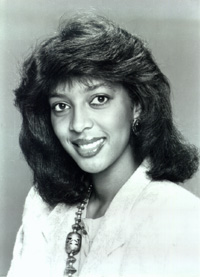| When and how did you become involved with the ARCS foundation? |
Dottie Simpson who was president of the Seattle Chapter in addition to being a past National president approached me about ARCS on the mid1990s. She is truly committed to the vision of ARCS and she was seeking ways to improve the chapter by diversifying its membership. She was seeking ways to attract professional, younger and ethnically diverse women in the greater Seattle area. I knew Dottie from various organizations which she had supported and was impressed by her commitment to the community. Somehow she knew that I had graduated from Clemson University in South Carolina with a B.S. in Mathematical Science with a minor in Biology. Dottie graduated from Duke University with a Math degree. Our respective schools were competitors in the same conference (Atlantic Coast Conference)
|
| What sparked your interest in science? |
| Science was like fitting the pieces together to a puzzle. I like figuring things out, particularly as it related to math. I thought I wanted to be a doctor but realized that I was not disciplined enough for this profession. Then I thought that I wanted to be an engineer and realized that I did not have a lot in common with my classmates. So, when my father told me that I had four years to graduate from college and needed to become more serious about my education, I decided to take to easy way out by declaring a major in the subject that I had received the best grades and studied the least. This subject was math. I loved math and really enjoyed the applications that related to it. I found myself engaging more in the classroom and even challenging my professors on answers on tests. When I graduated from college, I had not found a full-time job and chose to work in the school district as a substitute teacher. Most of my assignments were math classes in Junior High and High School for teachers who were away on maternity leave. I loved having this type of an arrangement because it allowed me to get more involved with the students and connect with them.
|
| Why the ARCS foundation? |
ARCS Foundation, Inc. is without a doubt one of the most progressive organizations that I have encountered. The women in this organization are intelligent, hard-working, committed and the know how to get things done. I am impressed with their dedication to the field of science. ARCS success has been their ability to communicate their love of science so articulately which has led to its phenomenal success in the Seattle Chapter.
|
| What have been your biggest successes? |
| I think organizationally it has been our 25-year history and the ability to continue growing our endowment as well as continue to have interest for our annual awards luncheon. History shows that the very first check written to the University of Washington in 1977 was for $1000. ARCS is now the single largest donor to the University of Washington with over five million dollars raised for fellowships.
|
| What would you like to see for the future of science? |
I would like to see that our scientists continue receiving the support and critically needed dollars in order for them to continue making progress for the numerous challenges which face our world. I would love to see students drawn to science because they are passionate about it and want to share this passion with the world. I would like to see a cure for diseases such a AIDS, cancer, sickle cell, etc. This is what is exciting about science.
|
| The future of ARCS? |
| I would like to see our endowment continue growing and it would be great to be able to establish additional ARCS Chapters throughout our country. I would like for ARCS to continue to thrive. We need to continue identifying smart, hardworking and dedicated women to spread the message of ARCS throughout our community and not worry about taking risks!
|
| What advice would you give to future graduate students in the sciences? |
| The sky is the limit! Do not be afraid to take risks, ask questions and be willing to be advocates for science. ARCS message to our donors is best provided through the universities who identify and attract highly capable and bright minds who are able to positively promote the field of science. When our donors connect with the research that the fellows are working on, it is easier to sell them on the vision of ARCS.
|


